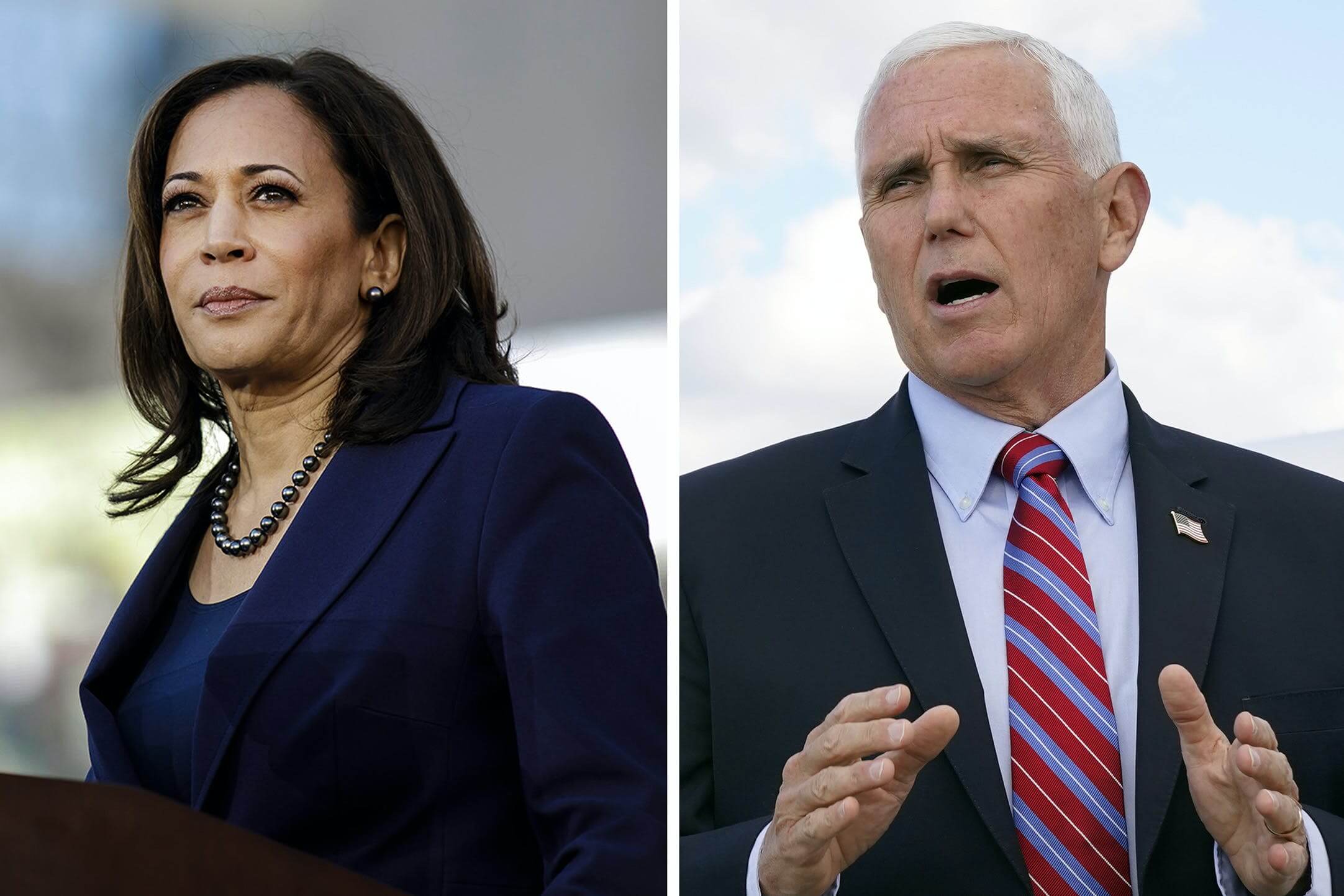
Sen. Kamala Harris facing VP Mike Pence
WASHINGTON — When Americans tune in to watch Vice President Mike Pence debate Sen. Kamala Harris, D-Calif., they’ll be watching a living encapsulation of the country’s demographic transformation over the last half century.
Pence traces his heritage back to Ireland and Germany and speaks of an Irish immigrant grandfather who stepped off a boat on Ellis Island before it shut down, pointing to two countries that represent some of the earliest waves of mass immigration to the United States.
Pence, 61, describes himself as “a Christian, a conservative and a Republican, in that order.” His demographic — white, Christian and male — has been the dominant force of power for most of the country’s history. But it has become less so during his lifetime.
Near the end of Pence’s childhood in 1976, 8 in 10 Americans identified as white and Christian. By his first year as vice president in 2017, that number had declined to 43 percent, according to the Public Religion Research Institute.
That trend, which is on course to continue, is a backdrop for the country’s volatile political environment, one that became more fraught after the United States elected its first Black president in Barack Obama on a message of “hope” and racial harmony and, eight years later, sent Donald Trump to the White House on a platform of building a wall and slashing immigration.
Today it is Harris, the first Black and Asian American woman to be included on a major party presidential ticket, who reflects the changing demographics of the country.
Harris, 55, embodies the melting pot that America has become. She’s a daughter of an Indian immigrant mother and a Jamaican father. She grew up with Hindu and Christian influences, identifies as a Baptist, and has a Jewish husband. Born in Oakland, California, she’s the first in her immediate family to be constitutionally eligible to serve on a U.S. presidential ticket.
That she will share a debate stage with Pence in a competition to be one heartbeat from the presidency is an indication of how radically the country has changed during their lifetimes.
Stephanie Cutter, the deputy campaign manager for Obama in 2012, said the Pence-Harris contrast is one between the country’s past and its future: “A powerful, fading, out-of-step America versus the future, which is much more diverse, energetic, progressive, multicultural.”
“It’s not about the past. We are not returning to the 1950s,” Cutter said. “We need to embrace the future and deal with our significant challenges now — from COVID to the economy to climate change.”
For its part, the Trump-Pence campaign has sought to paint Harris as a “radical.”
“Kamala Harris is the most liberal member of the entire U.S. Senate and she serves to push Joe Biden even further to the left,” Trump spokesman Tim Murtaugh said, assailing her positions on taxes, energy, health care and “amnesty for 11 million illegal aliens.”
Less than a year after Harris was born, the Immigration and Nationality Act of 1965 did away with the favored status of Western Europe and opened its doors to newcomers from other parts of the world. Waves of immigration from Latin America and Asia followed.
From 2000 to 2015, the Asian American population surged by 72 percent, making it the fastest-growing ethnic or racial group in the United States, according to Census data analyzed by the Pew Research Center.
Although the minority population has grown, non-Hispanic white Americans still make up a majority of the U.S., at 60 percent in the latest Census data.
In 2016, Trump and Pence successfully capitalized on the nostalgia many older voters felt for an earlier time, before liberal social movements changed American culture and globalization adversely affected the economic prospects of the white working class.
Democrats have sought to court the growing minority population.
An NBC/Wall Street Journal poll released Sunday found that white voters prefer Trump and Pence by 2 points, while non-white voters favor Biden and Harris by 56 points, powering the Democratic ticket to a 14-point lead among registered voters.
Harris has achieved numerous “firsts,” including becoming the first Black woman district attorney and then attorney general of California. In 2016, she became the first Indian American to be elected to the United States Senate.
She ran unsuccessfully for p
resident last year and famously clashed with eventual nominee Joe Biden in the first Democratic debate over his past work with segregationists. More than a year after that showdown, Biden, under pressure to find a running mate who reflected the diversity of the Democratic Party, chose Harris.
“Just about every position she’s had, she has had to break barriers, break glass ceilings. She’s had to be a first,” Sen. Cory Booker, D-N.J., told reporters Wednesday, adding that Harris’s presence on stage will be an inspiration to young Black and Indian girls.
“This is one of those nights that’s going to reverberate in many ways,” Booker said. “I’m very excited about this moment in history.”

